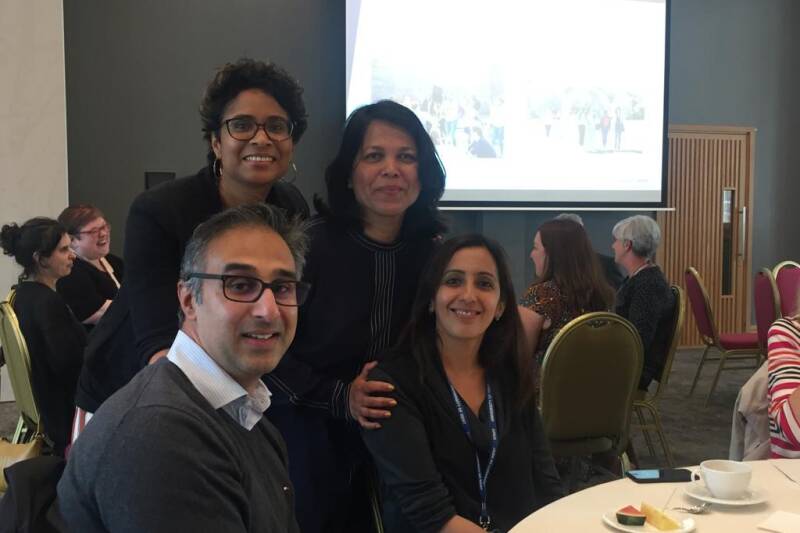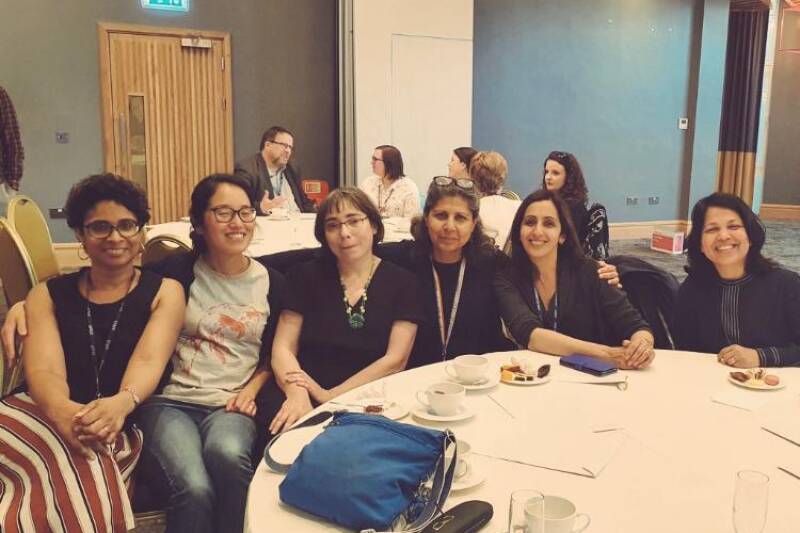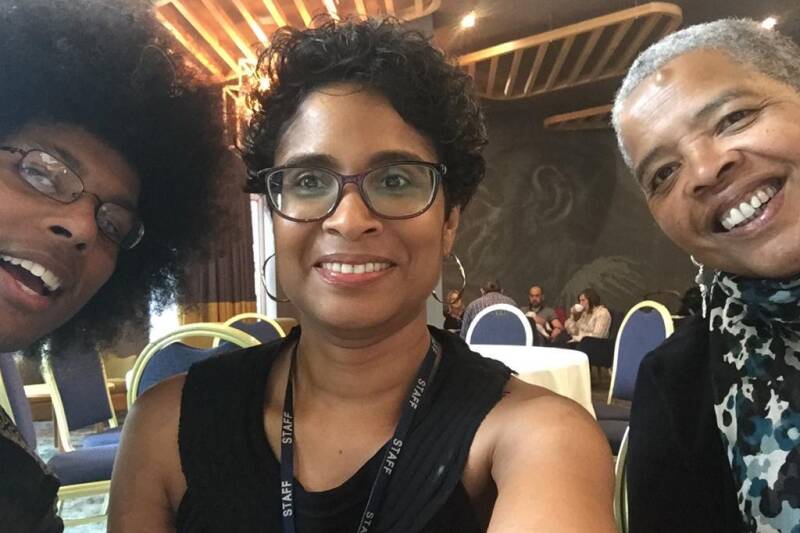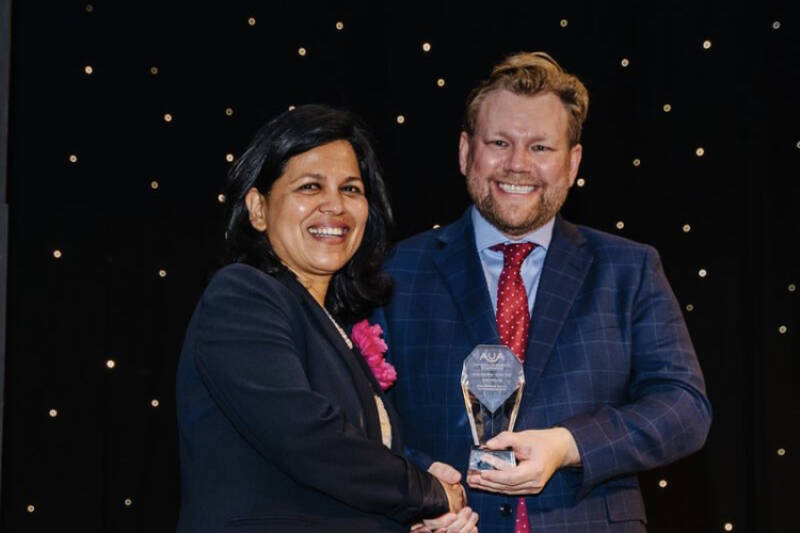Latest News
- The BAME Staff Network co-chairs are reassured to see that our institution has provided a timely and appropriate response to the increasing unrest across the UK, following the tragic incidences in Southport. We would like all staff and students of colour to know that the Network is here as an additional source of support, and we are available for 1-1 confidential contact, signposting and to offer any further guidance which may be suitable for your individual need. We have worked closely with the university over recent years to create a safer environment for all staff and students, whatever their race, ethnicity, faith or religion, and are fully aware of how the current far-right, anti-immigration riots has the potential to damage this progress. However, we will do whatever we can to prevent this and keep pushing forward for equality and equity at Kent so please do not hesitate to contact us, either via our individual email addresses (below), or via
- Vanisha Jassal: v.jassal@kent.ac.uk
- Dr Barbara Adewumi: b.adewumi-282@kent.ac.uk
- Dr Bridget Ng’andu: b.ng'andu@kent.ac.uk
- Professor Gurprit Lall: g.lall@kent.ac.uk
- Mita Mondal: m.mondal-595@kent.ac.uk
- The book 'Child Sexual Abuse in Black and Minoritised Communities' is now available to purchase and includes a chapter from Vanisha Jassal (Co-Chair of the BAME staff network and Director of Studies in MA Advanced Child Protection/Social Work). The chapter is entitled ‘Preserving what for whom?’ Female victim/survivor perspectives on the silence behind child sexual abuse in Britain’s South Asian communities' and examines child sexual abuse of Britain's female South Asian victims/survivors. Through a narrative research design, 15 females (now adults) share their stories and provide rarely heard insights into lived experiences and barriers to disclosures and reporting which can often be weighted by cultural norms. Adopting an intersectional framework, this edited collection provides critical insights into the subject of child sexual abuse as experienced by racially minoritised communities. You can order the book here: https://www.waterstones.com/book/child-sexual-abuse-and-black-and-minoritised-communities/aisha-k-gill/hannah-begum/9783031063367
- Congratulations to all BAME Staff Network Co-chairs for being nominated for this year’s UoK EDI Awards. This recognises the commitment and work undertaken by co-chairs, of all the inequalities staff networks, and helps keep everyone motivated to continue the work.
- Congratulations to co-chair Mita Mondal (Quality Assurance and Accreditation Manager) for winning the 2022 AUA (Association of University Administrators) Member of the Year Award. Congratulations Mita!
- Congratulations to co-chair Dr Gurprit Lall (Director of Graduate Studies at the Medway School of Pharmacy) on his professorship! Congratulations Professor Lall on this huge achievement.
Our BAME Staff network progress report for the year 2021/22 is now available to read!
Learn more about everything we've achieved this academic year, found here.
Our BAME staff network all staff survey report 2022 is now out!
The BAME staff network all staff survey research sought to understand the culture of the University of Kent, in order to advance race equality and improve career progression and staff development. A key priority for the network was to launch an all-staff survey to learn about the experiences and views regarding the university’s EDI practices and policies. The survey was designed and launched by the Co-Chairs in 2020-21 and was entitled ‘BAME Staff Network All Staff Survey 2020’. This report documents the findings from the survey and the report can be found here.
2024/25 Meetings
Coming soon.
About us
Our BAME Staff Network was launched in October 2019 to support the University’s commitment to equality, diversity and inclusivity and provide an active forum for BAME staff to discuss issues and share experiences important to them. Current Network Co-Chairs are Dr Bridget Ng’andu, Dave Thomas, Dr Barbara Adewumi and Vanisha Jassal; all have been staff members at Kent for several years. Two of the Co-Chairs are also studying at the University. We bring a range of experience and knowledge related to both staff and students – critical to a nuanced contextual understanding of BAME experiences at the University. We have brought this BAME network together to create a community for academic and professional members of staff who identify as being part of a Black Asian Minority ethnic group. Our aim is to help each other connect in ways that will create a sense of belonging through sharing our experiences and providing support that will drive progressive equitable change.
To find out more about the chairs, please read their Meet the Co-Chairs blog: BAME Staff Network – Talent and Organisational Development Latest News (kent.ac.uk) and watch their video introductions: https://kent.cloud.panopto.eu/Panopto/Pages/Viewer.aspx?id=bd83cd50-a3fd-4a6d-a1fc-abc000ab144c
Terms of Reference
- The BAME Staff Network aims to:
- support the University in meeting its commitment to equality, diversity and inclusivity, as governed by the Equality Act 2010 and Public Sector Equality Duty, through consultation on the development, design and implementation of policies, processes, services and working practices
- work in collaboration with the University in identifying strategies to address (intersecting) inequalities and provide accessible and appropriate mechanisms of accountability
- provide an effective channel of communication between Senior Management and staff of colour who identify as belonging to a BAME background
- provide a forum for coaching, mentoring and advocacy for BAME staff/staff of colour
- to raise awareness of the broad range of knowledge, skills, expertise and contributions of BAME staff/staff of colour so that the university can make fully informed decisions in advancing its strategic aims, objectives and corporate social responsibilities, as well as promote positive staff experiences
- raise awareness of discrimination, harassment, micro-aggressions, pay and/or promotions gaps and other disadvantage experienced by BAME staff/staff of colour
Challenging Racism at the University of Kent Webpage
Access to Challenging Racism Together Microsite with 3 pre-recorded webinars
Members
It was agreed to have several co-chairs to take on a shared labour approach to the set up of the network and its future activities and that these positions should be held by a mix of PS, academic and precariat staff. The following members have kindly agreed to take on the role of co-chairs:
BAME Staff Network Co-Chairs:
- Bridget Ng’andu
- Barbara Adewumi
- Vanisha Jassal
- Mita Mondal
- Gurprit Lall
Email: bamestaffnetwork@kent.ac.uk
Meeting Minutes
Click on the dates below for notes, summary discussions and good practice examples:
Information
This section is about sharing information and allows members of the BAME network to know about information from organisations or people that might be particularly useful for BAME members of staff (but may not necessarily be exclusive to a BAME audience).
What is VitaMinds?
VitaMinds is your local NHS talking therapies service, known as IAPT (Improving Access to Psychological Therapies). It is a free service.
VitaMinds are aware that statistically those from a BAME background are significantly under-represented in terms of seeking support for their mental health.
Please see here a direct link to their online referral form:
Direct link for online referral to VitaMinds.
Access the Vitaminds webpage where you can find free self- help resources and webinars.
Past Events:
We had an amazing event where we invited the distinguished Professor Sir Hilary Beckles to provide an online talk at our BAME staff network Annual Race Equality Lecture on the 2nd November 2020.
To listen to the lecture on "British Universities As Architects Of Slavery And Violent Colonialism: Undoing the Harm" click here.
Please note: in order to listen to the recording, you will need to enter the password: ?1WXVN=7.
2020 BAME staff network All Staff Survey Findings Presentation and Report
This survey is the first part of a wider piece of research that seeks to understand the culture of the University of Kent, in order to advance race equality. The data was analysed and the findings presented on 10th February 2-3pm by Dr Heejung Chung and Hyojin Seo (Research Postgraduate) in LSSJ and was supported by Network co-chairs Dave Thomas, Dr Barbara Adewumi and Dr Bridget Ng’andu. Over 60 staff attended the Q & A session.
All Staff Survey Report can be found here. The report was published in January 2022.
Presentation link: https://bit.ly/3jF2d2v
Thank you to all of you who completed the 2020 BAME All Staff Survey organised by the BAME Staff Network.
Resources
If you have found a book, article or any other kind of resource particularly helpful as an ally, please email ldev@kent.ac.uk and we can add it to this page.
Research:
The BAME Staff Network seeks to disseminate important research which addresses racial inequalities of any kind. The below research undertaken by Kijiji Ltd. indicates that Black safeguarding professionals (BSPs) feel that there is a lack of fair and equal progression opportunities for (BSPs) and that their ethnicity has imposed barriers to their career progression:
Solarin et al (2021). Survey Report: opportunities and support for Black safeguarding professionals. (Kijiji Ltd)
UK charities
- Runnymede, a race equality think-tank
- Race on the Agenda, a social policy think-tank
- Stephen Lawrence Trust works with and supports young people
- Operation Black Vote tackles the Black democratic deficit
- StopWatch UK works to ensure fair and accountable policing
- United Families & Friends Campaign against police custody deaths
Twitter threads
- 10 steps to non-optical allyship
- So you don't like racism but you're in the UK and feel powerless
- How to be mindful when you check in on your Black friends
- A thread by Equality Diversity & Inclusion in Science and Health
- A thread listing some Black businesses in the UK
Articles
- White privilege: unpacking the invisible knapsack
- Guidelines for being strong white allies
- White people, here's how we can be better allies and anti-racist
- Why you should stop saying "all lives matter"
- Racial microaggressions in science
- Is Covid-19 an “equal opportunity disease”? – Social Work 2020 under Covid-19 (shef.ac.uk)
Books
- Why I’m No Longer Talking to White People About Race by Reni-Eddo Lodge
- So You Want to Talk About Race by Ijeoma Oluo
- How to Be an Antiracist by Ibram X. Kendi
- Brit(ish) by Afua Hirsch
- The Good Immigrant edited by Nikesh Shukla
- How to Argue with a Racist by Adam Rutherford
- Superior: The Return of Race Science by Angela Saini
- Natives: Race and Class in the Ruins of Empire by Akala
- White Fragility: Why It's So Hard for White People to Talk About Racism by Robin DiAngelo
Discover more through Imperial As One's reading list (Imperial login required)
Diversity Mark Toolkits - Tips to diversify your reading lists
5 tips for being an ally
In this short video, comedian and activisit Franchesca Ramsey, also known as Chescaleigh, gives her five tips for being a good ally.
White saviour vs ally
Learn about the difference between a white saviour and a white ally
Actress and comedian Amanda Seales explains the differences between a white saviour and a white ally.
Deconstructing white privilege
Understand more about white privilege and what it means
Academic and author Dr Robin DiAngelo deconstructs white privilege and discusses 'white fragility'.
Talking about race with white people
A brief but spectacular take on talking about race
Author and journalist Renni Eddo-Lodge explains what happens when she tries to talk about race with white people.
What to do as an ally
Doing anti-racist work: The story of DecoloniseUofK project and the Kaleidoscope Network.
Listen
Listen to what Black people are saying. Check in on your Black friends, family and colleagues and ask what you can do to support them. Remember to acknowledge that there is a lot of hurt and pain. Do not be offended if you are trying to engage and someone is not automatically receptive. You should centre the conversation on their needs, rather than make a performance out of your allyship.If you are on social media, follow the accounts of Black activists. A good place to start is the @ukblm Twitter account, a coalition of UK Black Lives Matter activists.
Boost the voices of Black people
On social media, share threads/posts with donation links and resources and ways to support.
If you come across images or videos of violence against Black people, avoid sharing these as they are traumatising for many and contribute to the further dehumanisation of Black people.
Acknowledge your privilege
Understand that you have white privilege and think about how you can use this privilege to make change and educate others in your community.
This may not be an easy topic but start by educating yourself and reading on the topic.
Keep the conversation going with other white people
If you have friends or family who take a different stance on these issues, now is the time to have a hard conversation with them and ask them to rethink their views.
Now is also the time to have conversations with other like-minded allies. Talk about how you can do better and discuss what you can do to help and pool your efforts.
Practice Social distancing
The UK Government has published their 'Disparities in the risk and outcomes of COVID-19' report. This shows that BAME people are at higher risk of death from COVID-19. The death rates of Black men are 3.9 higher than that of white men, and the death rates of Black women 3.3 times higher than that of white women.
Practising social distancing is extremely important to save all lives but especially Black lives.
Imperial has a dedicated site for College updates on COVID-19 for our community.
Educate yourself
Do your own research and do not ask or expect Black people to educate you. Read books, especially nonfiction books, by Black authors. Buy them from independent bookshops or borrow them from your library.
You could start with the suggested articles, books and videos listed below on this page.
Speak up and challenge racism
If you hear people make racist comments, call them out. It's important to be proactively anti-racist.
Imperial offers a general Active Bystander training workshop, to empower staff to challenge poor behaviours and bring about cultural change.
Take action and donate
You may not be able to attend a protest due to COVID-19, but you can do other things. For example, contact your MP to ask them about what they are doing to combat racism.
Aside from donating to support the Black Lives Matter cause in the US, you can also make donations to causes closer to home. Or find and support local Black-owned businesses and charities
Other Ally resources
- Kimberlé
Crenshaw’s TED Talk about
intersectionality
Fast Company - how exclusion and trauma impact the workplace. - Culture Amp – looking at inclusion through the lens of exclusion
- The concept of ‘equity literacy’
- The national equity project’s ‘Lens of Systemic Oppression’












